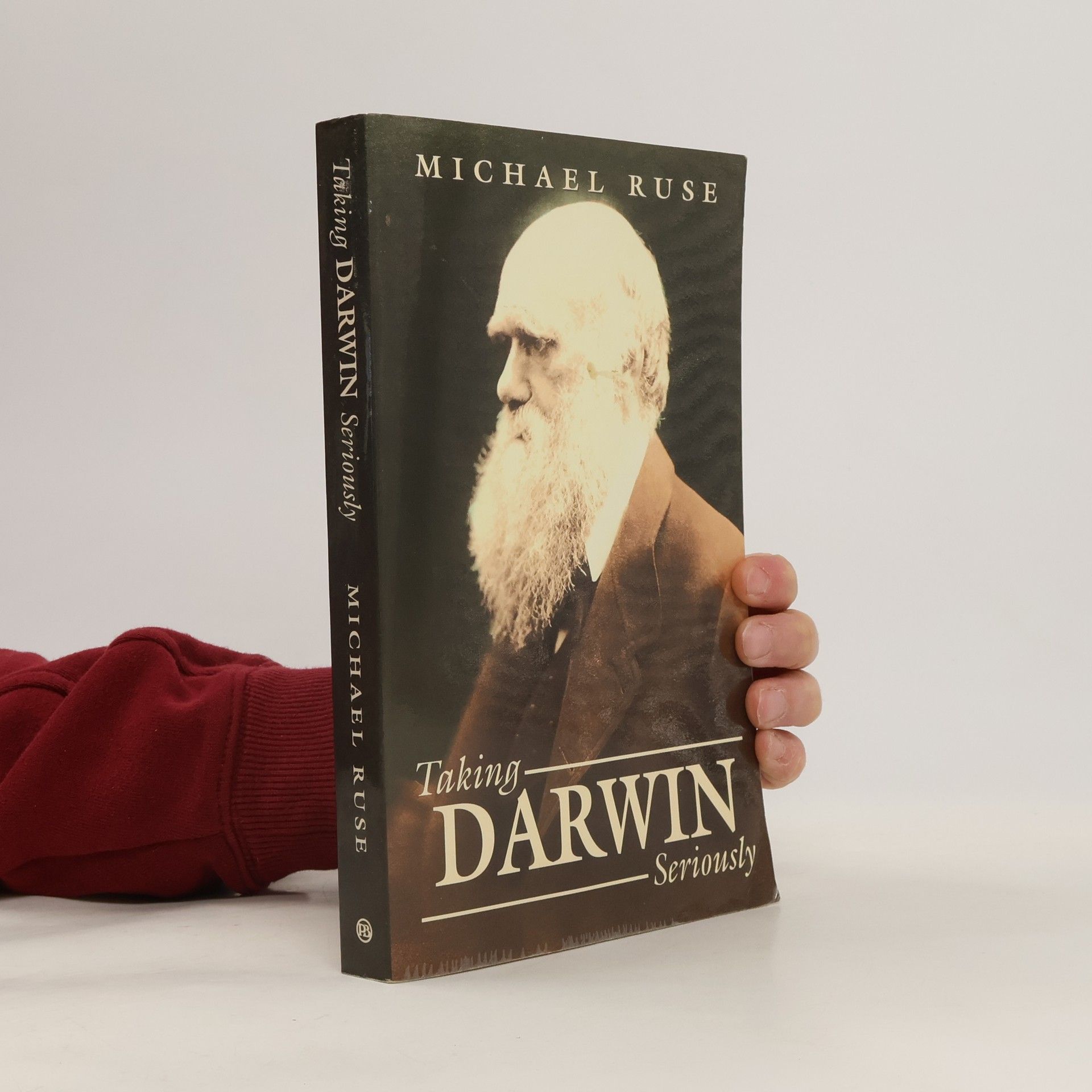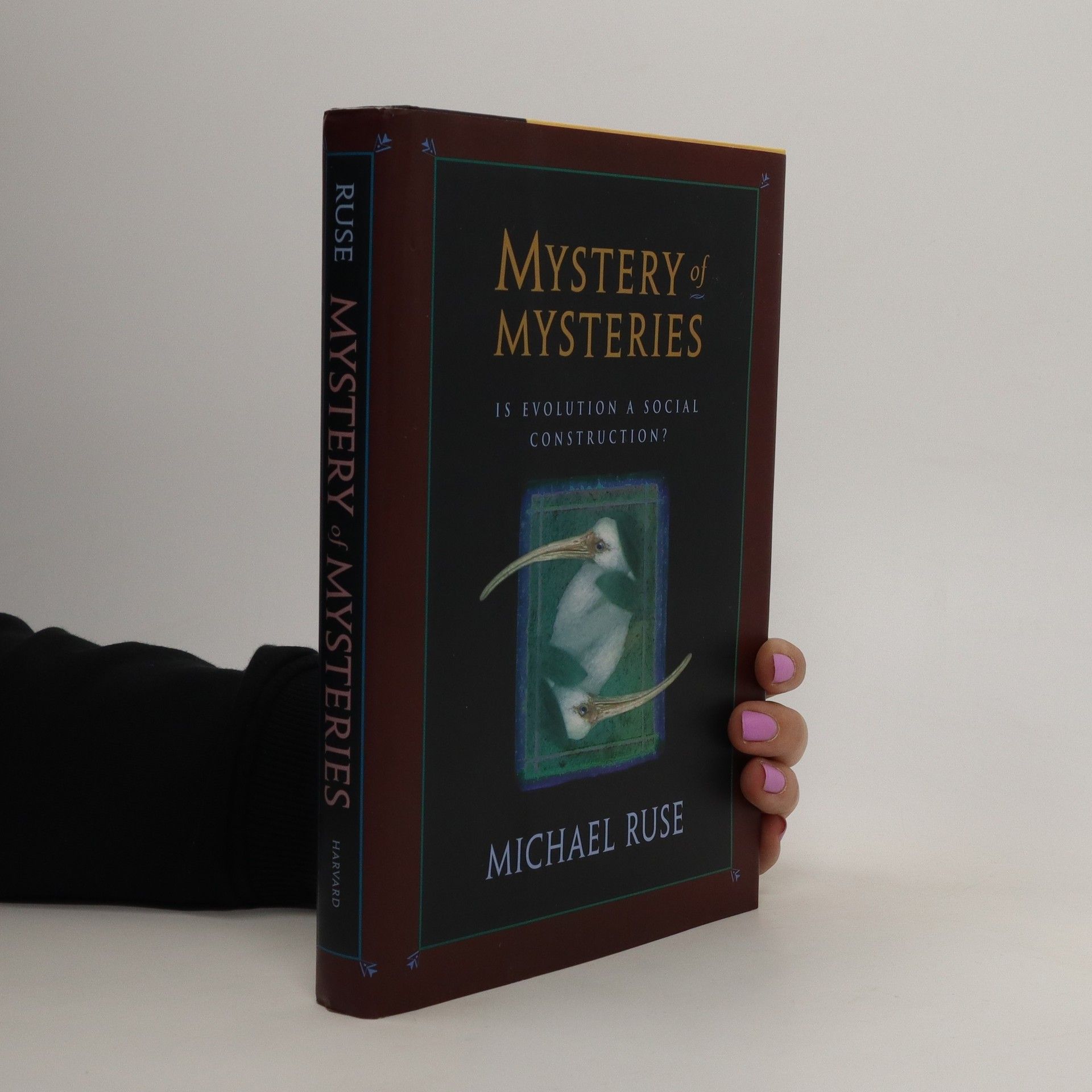The book presents a transformative perspective on Charles Darwin's theory of evolution, arguing that it can coexist with religious beliefs. It explores the historical context of the theory while asserting its relevance in addressing contemporary social issues such as immigration, race, homosexuality, and women's rights. By linking evolution to these pressing matters, it aims to foster a deeper understanding of both science and society.
Michael Ruse Ordre des livres (chronologique)
Michael Ruse est un éminent philosophe des sciences dont le travail se concentre sur la philosophie de la biologie. Il est célèbre pour ses explorations perspicaces des liens entre la science et la religion, le débat créationnisme-évolution et le problème de la démarcation en science. À travers ses nombreuses publications et la création de la prestigieuse revue Biology and Philosophy, Ruse a apporté des contributions significatives au domaine, offrant une perspective unique sur la nature et les limites de la recherche scientifique.







LUDZIE OKIEM FILOZOFA Niektórzy sądzą, że świat jest organizmem, a ludzie jako jego najdoskonalszy element mają naturalną wartość. Inni z kolei widzą świat jako maszynę, a ludzi jako kreatorów, którzy muszą nadać wartość samym sobie. W książce Okiem filozofa. Ludzie brytyjski filozof, Michael Ruse, analizuje te dwie odmienne perspektywy, odwołując się do religii, filozofii i nauki. Nawiązuje do przekonań dotyczących człowieka głoszonych przez chrześcijan, buddystów, sekularystów i egzystencjalistów. Czerpie również z darwinowskiej teorii ewolucji, biologii molekularnej i genetyki. Wszystko po to, aby znaleźć odpowiedź na pytanie: Co czyni nas, ludzi, wyjątkowymi? Okiem filozofa. Ludzie to niezwykle fascynujące spojrzenie na człowieka – jego miejsce w świecie, ograniczenia i moralność. W każdym tomie z serii Okiem filozofa powszechnie uznani myśliciele prezentują osobistą refleksję na tematy, z którymi spotykamy się w codziennym życiu.
Understanding the Christianity-Evolution Relationship
- 205pages
- 8 heures de lecture
This book explores the relationship between religion and the life sciences, focusing on Christianity and evolution. It brings fresh insights to the science/religion debate for general readers, undergraduate and graduate students interested in evolutionary biology, genetics, philosophy of science, history of science, and philosophy of religion.
Why We Hate tackles a pressing issue of both longstanding interest and fresh relevance: why a social species like Homo sapiens should nevertheless be so hateful to itself. We go to war and are prejudiced against our fellow human beings. We discriminate on the basis of nationality, class, race, sexual orientation, religion, and gender. In this book, prominent philosopher Michael Ruse looks at scientific understandings of human hatred, particularly Darwinian evolutionary theory. He finds the secret to this paradox in our tribal evolutionary past, when we moved ten thousand years ago from being hunter-gatherers to agriculturalists--a shift that paved the way for modern civilization. Simply put, as Ruse quotes, "our modern skulls house Stone Age minds."
Understanding Natural Selection
- 188pages
- 7 heures de lecture
Natural selection is seen to be profoundly important for understanding culture, morality and religion. This short book explains Charles Darwin's mechanism of natural selection and puts it in historical context. Written in clear language, it is accessible to the general reader as well as to philosophers, historians and biologists.
A philosophical history of Social Darwinism. Discusses the meaning of the term, moving then to its origins, before moving on to Social Darwinism as found in American thought. Then explores the twentieth century, looking at Adolf Hitler, and in the Anglophone world, Julian Huxley and Edward O. Wilson.
Why do we think ourselves superior to all other animals? Are we right to think so? In this book, Michael Ruse explores these questions in religion, science and philosophy. Some people think that the world is an organism - and that humans, as its highest part, have a natural value (this view appeals particularly to people of religion). Others think that the world is a machine - and that we therefore have responsibility for making our own value judgements (including judgements about ourselves). Ruse provides a compelling analysis of these two rival views and the age-old conflict between them. In a wide-ranging and fascinating discussion, he draws on Darwinism and existentialism to argue that only the view that the world is a machine does justice to our humanity. This new series offers short and personal perspectives by expert thinkers on topics that we all encounter in our everyday lives.
Monotheism and Contemporary Atheism
- 75pages
- 3 heures de lecture
In this Element, Michael Ruse offers a critical analysis of contemporary atheism. He puts special emphasis on the work of so-called 'New Atheists': Richard Dawkins, Sam Harris, Daniel Dennett, and Christopher Hitchins, whose views are contrasted with those of Edward O. Wilson.
On Purpose
- 320pages
- 12 heures de lecture
An accessible history of the idea of purpose in Western thought, from ancient Greece to the present Can we live without the idea of purpose? Should we even try to? Kant thought we were stuck with it, and even Darwin, who profoundly shook the idea, was unable to kill it. Indeed, purpose seems to be making a comeback today, as both religious advocates of intelligent design and some prominent secular philosophers argue that any explanation of life without the idea of purpose is missing something essential. On Purpose explores the history of purpose in philosophical, religious, scientific, and historical thought, from ancient Greece to the present. Accessibly written and filled with literary and other examples, the book traces how Platonic, Aristotelian, and Kantian ideas of purpose continue to shape Western thought. Along the way, it also takes up tough questions about the purpose of life--and whether it's possible to have meaning without purpose.
Evolution and Religion
- 168pages
- 6 heures de lecture
Michael Ruse, a leading expert on Charles Darwin, presents a fictional dialogue among characters with sharply contrasting positions regarding the tensions between science and religious belief.